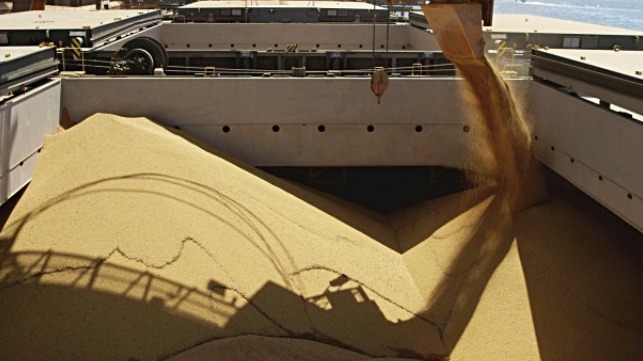Главы Всемирной торговой организации (ВТО), Продовольственной и сельскохозяйственной организации ООН (ФАО) и Всемирной организации здравоохранения (ВОЗ) опубликовали 31 марта совместное заявление, в котором призвали правительства минимизировать влияние связанных с COVID-19 пограничных ограничений на торговлю продуктами питания.
Мы должны обеспечить, чтобы информация о торговых мерах, связанных с продуктами питания, уровне производства, потребления и запасов продуктов питания, а также о ценах на продукты питания была доступна всем в режиме реального времени. Это уменьшает неопределенность и позволяет производителям, потребителям и трейдерам принимать обоснованные решения. Прежде всего, это помогает сдерживать «панические покупки» и накопление продуктов питания и других предметов первой необходимости. Сейчас настало время проявить солидарность, действовать ответственно и придерживаться нашей общей цели повышения продовольственной безопасности, безопасности пищевых продуктов и питания и улучшения общего благосостояния людей во всем мире. Мы должны гарантировать, что наш ответ на COVID-19 не приведет к нехватке необходимых предметов и не усугубит голод и недоедание.

The heads of the World Trade Organization (WTO), the UN Food and Agriculture Organization (FAO) and the World Health Organization (WHO) issued a joint statement on March 31 calling on governments to minimize the impact of COVID-19 related border restrictions on trade in food.
“Now is the time to show solidarity, act responsibly and adhere to our common goal of enhancing food security, food safety and nutrition and improving the general welfare of people around the world,” the agency heads said.
Joint Statement by QU Dongyu, Tedros Adhanom Ghebreyesus and Roberto Azevêdo, Directors-General of FAO, WHO and WTO
Millions of people around the world depend on international trade for their food security and livelihoods. As countries move to enact measures aiming to halt the accelerating COVID-19 pandemic, care must be taken to minimize potential impacts on the food supply or unintended consequences on global trade and food security.
When acting to protect the health and well-being of their citizens, countries should ensure that any trade-related measures do not disrupt the food supply chain. Such disruptions including hampering the movement of agricultural and food industry workers and extending border delays for food containers, result in the spoilage of perishables and increasing food waste. Food trade restrictions could also be linked to unjustified concerns on food safety. If such a scenario were to materialize, it would disrupt the food supply chain, with particularly pronounced consequences for the most vulnerable and food insecure populations.
Uncertainty about food availability can spark a wave of export restrictions, creating a shortage on the global market. Such reactions can alter the balance between food supply and demand, resulting in price spikes and increased price volatility. We learned from previous crises that such measures are particularly damaging for low-income, food-deficit countries and to the efforts of humanitarian organizations to procure food for those in desperate need.
We must prevent the repeat of such damaging measures. It is at times like this that more, not less, international cooperation becomes vital. In the midst of the COVID-19 lockdowns, every effort must be made to ensure that trade flows as freely as possible, specially to avoid food shortage. Similarly, it is also critical that food producers and food workers at processing and retail level are protected to minimize the spread of the disease within this sector and maintain food supply chains. Consumers, in particular the most vulnerable, must continue to be able to access food within their communities under strict safety requirements.
We must also ensure that information on food-related trade measures, levels of food production, consumption and stocks, as well as on food prices, is available to all in real time. This reduces uncertainty and allows producers, consumers and traders to make informed decisions. Above all, it helps contain ‘panic buying’ and the hoarding of food and other essential items.
Now is the time to show solidarity, act responsibly and adhere to our common goal of enhancing food security, food safety and nutrition and improving the general welfare of people around the world. We must ensure that our response to COVID-19 does not unintentionally create unwarranted shortages of essential items and exacerbate hunger and malnutrition.
Источник: https://maritime-executive.com/article/wto-who-and-fao-call-for-action-on-food-trade
